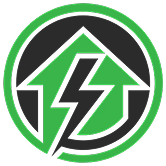
Home Backup Systems vs. Off-Grid Solar Systems: Which Fits Your Lifestyle?
Introduction
With energy costs rising and power outages becoming more common, many people are considering alternative power solutions. But should you invest in a home backup system or go fully off-grid with solar? Both options can provide reliable energy — the best choice depends on your lifestyle and goals.
At Build The Power, our Complete Solar Systems Collection includes packages suitable for both backup and off-grid use.
What is a Home Backup System?
A home backup system is designed to keep your essential appliances running during grid outages. It typically consists of:
-
A battery storage unit (like FranklinWH aPower)
-
An inverter to convert stored power to AC
-
An integration kit or transfer switch to connect to your home circuits
Best For:
-
Homes with existing grid connection
-
Emergency preparedness
-
Short-term outages or peak price shaving
What is an Off-Grid Solar System?
An off-grid solar system powers your home or site completely independently of the grid. It usually includes:
-
Solar panels for generation
-
Charge controllers and inverters
-
Large battery banks
-
Backup generators (optional)
Best For:
-
Remote properties without grid access
-
Long-term energy independence
-
Sustainable living
Explore our Complete Solar Systems for off-grid packages.
Comparison Table
| Feature | Home Backup System | Off-Grid Solar System |
|---|---|---|
| Grid Connection | Connected to the grid | Fully independent |
| Main Purpose | Emergency backup during outages | Complete self-sufficiency |
| Cost | Lower initial investment | Higher upfront cost |
| Battery Capacity | Smaller, sized for essentials | Larger, sized for full-time use |
| Maintenance | Minimal | More hands-on |
| Best For | Urban/suburban homes | Remote properties & eco-living |
Pros & Cons
Home Backup Systems
Pros:
-
Lower cost.
-
Easy integration with existing electrical systems.
-
Perfect for short-term outages.
Cons:
-
Still dependent on the grid.
-
Limited battery capacity compared to off-grid setups.
Off-Grid Solar Systems
Pros:
-
Complete energy independence.
-
No electricity bills.
-
Ideal for remote locations.
Cons:
-
Higher upfront investment.
-
Requires careful sizing and maintenance.
Which Should You Choose?
-
Live in Town or Want Simple Backup? Choose a Home Backup System with battery storage.
-
Live Remotely or Want Total Independence? Go for an Off-Grid Solar System.
-
Hybrid Approach: Start with a backup system and expand later for off-grid capability.
Conclusion & Call to Action
Both home backup and off-grid solar systems can protect you from power cuts and rising energy costs. The right choice depends on whether you want emergency resilience or full energy independence.
👉 Explore now: Shop Complete Solar Systems at Build The Power.

